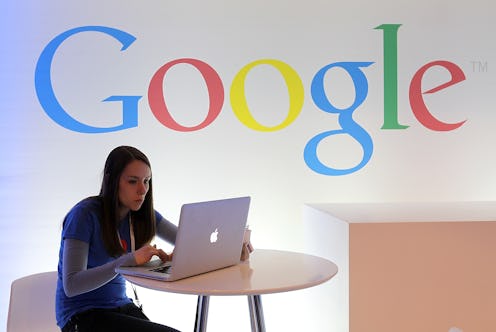News
Time For Your Google Helpouts Appointment
The Internet might be the worst thing that's ever happened to hypochondriacs. ZocDoc, the online medical care scheduling service, for instance, makes a vague suggestion that a runny nose could be a symptom of HIV. You know what else a runny nose could be a symptom for? Allergies to your cat Fluffy. So in order to dispel some of the fears that accompany self diagnosis with platforms like Zocdoc, WebMD and the Mayo Clinic, Google Helpouts is expanding to allow free doctor video chats, with the hopes that people will stop jumping to conclusions about their premature deaths, and instead get some much needed medical advice from professionals.
With fears of Ebola, the enterovirus and other diseases on the rise, it comes as no surprise that we are becoming increasingly cautious about our health, and taking no risks when it comes to catching an illness early on. But then again, sometimes in our vigilance, we develop a surprisingly paranoid capacity to turn a low-grade fever and a few muscle aches into a terminal illness that will put us in the ground by Christmas. Don't lie — you know you've done it too. And this is where Google's new service comes in.
For a select few Googlers, the Internet giant is testing a new feature of Google Helpouts that automatically prompts users to contact a doctor after googling symptoms of a disease. Unfortunately, I am not one of the lucky chosen — only those of you living in California or Massachusetts are eligible for the program — but if I were, I would see a screen much like this one after searching for, let's say, chills and muscle aches:
Reddit user Jason Houle first noticed the feature on Friday, when he took a screenshot of his Chrome browser on his Android phone after searching for "knee pain." On Saturday, Engadget confirmed with Google that this was not just a one-time fluke with Mr. Houle, but rather a new initiative that Google is testing in an attempt to further expand into the medical world.
Perhaps the best part of this new feature is the fact that it is 100 percent free. As noted in the little information bubble, "All visit costs are covered by Google during this limited trial." Of course, this isn't to say that you can actually visit the doctor for free. But there will be no cost to you to video chat with health professionals, which let's face it, is probably what most doctor visits are anyway. As a Google spokeswoman told the Guardian,
When you’re searching for basic health information – from conditions like insomnia or food poisoning – our goal is provide you with the most helpful information available. We’re trying this new feature to see if it’s useful to people.
And with Google backing the service, you won't need to worry about potentially talking to a quack with no degree and no real information. According to Daily News Digest, "Google will specifically run background checks and verification checks on healthcare professionals to make sure that they are qualified, licensed, and reputable individuals." And while these chats may not take the place of actually going to the doctor, they may be instrumental in determining first steps, or whether a visit is necessary at all.
Google isn't the first to break into this "telemedicine" field. In addition to sites like ZocDoc, there is also HealthTap, which allows its users to chat with doctors about specific health issues. HealthTap's services can also allow healthcare professionals to refill prescriptions or provide specialist referrals, and from the looks of it, it's also free. The issue with HealthTap, like Google's new feature, is that it is currently severely located by location. While patients in California, New York, Massachusetts and other large states have the option of videochatting with a healthcare professional, many others, including residents of Texas and New Hampshire, can only type a question and wait for an answer. Still, this is a huge step forward from nebulous searches for broad symptoms that may or may not lead to a proper identification of a disease.
And as for the prevalence of self-diagnosticians, there are several in the United States. A Pew Research Center study conducted in 2013 found that 35 percent of Americans had gone online to self-diagnose an illness, and that another 35 percent of those never went to the doctor to confirm the Internet's opinion. More concerning is that 18 percent of diagnosticians said that their doctors did not come to the same conclusions as WebMD, which means that a solid half of those people who depend on the Internet to tell them what ailments they have could be dead wrong in their assumptions. Hopefully, services like Google's and HealthTap will change that for the better.
As part of the Google Helpouts initiative, if the new service is fully implemented, it will eventually cost money to use. As with other Helpouts services, providers are able to name their own price for their work, and it is unclear yet whether or not health insurance would cover the cost of an e-visit. But one thing is for sure — this will give "Google Docs" a whole new meaning.
Images: jasonahoule/Reddit; HealthTap; Getty Images
